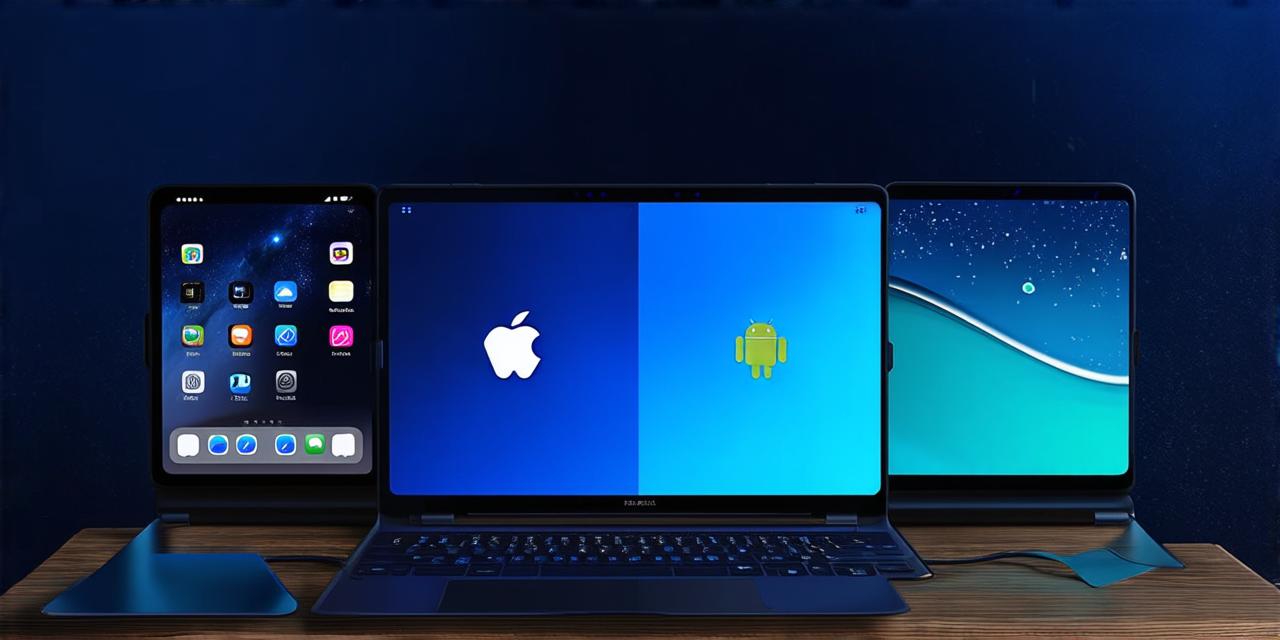When it comes to mobile app development, iOS and Android are two of the most popular platforms. Both have their own unique features, benefits, and drawbacks that developers need to consider when choosing which platform to use for their project. In this article, we’ll compare and contrast iOS and Android development and help you determine which is better suited for your mobile app development needs.
Introduction:
Mobile apps have become a vital part of modern life, providing users with endless entertainment, productivity, and convenience. With the rapid growth of smartphones and tablets, the demand for mobile apps has also grown exponentially. As a result, mobile app developers have two main platforms to choose from when building their apps: iOS and Android.
iOS Development:
Pros:
- High-quality apps
- Large audience
- Easy integration with Apple’s ecosystem
- Strong developer support
- Better security
Cons:
- High cost
- Limited customization
- Fewer development tools
Android Development:
Pros:
- Large audience
- Open-source platform
- More customization options
- Wider range of development tools
- Lower cost
Cons:
- Quality issues
- Security concerns
- Fragmentation
Target Audience:
The target audience for iOS development is typically affluent individuals who value high-quality apps and are willing to pay a premium for them. This makes iOS a valuable target audience for luxury brands or high-end apps. The target audience for Android development, on the other hand, is more diverse and includes users of all ages and income levels.
Development Tools and Frameworks:
Xcode is the official integrated development environment (IDE) for iOS development, while Android Studio is the official IDE for Android development. Swift and Objective-C are the programming languages used for iOS development, while Java and Kotlin are the programming languages used for Android development.
Unity, Unreal Engine, and Xamarin are popular game engines and frameworks that can be used to develop games on both platforms. Unity is a cross-platform game engine that supports both iOS and Android development, as well as other platforms such as PC, consoles, and VR. Unreal Engine is another cross-platform game engine that supports both iOS and Android development, as well as other platforms such as PC and consoles. Xamarin is a framework that allows developers to write code once and deploy it across multiple platforms, including iOS and Android.
Real-Life Examples:
1. Instagram: Instagram is one of the most popular photo-sharing apps in the world, with over 1 billion monthly active users. It was originally developed for iOS and later released for Android. Instagram’s developers chose to build the app for iOS first because it offered a more stable and secure platform, as well as better integration with Apple’s ecosystem.
2. Angry Birds: Angry Birds is one of the most popular mobile games in the world, with over 4 billion downloads worldwide. It was originally developed for iOS and later released for Android. Angry Birds’ developers chose to build the game for iOS first because it offered a more polished and high-quality gaming experience.
3. Uber: Uber is one of the most popular ride-hailing apps in the world, with over 90 million monthly active users. It was originally developed for iOS and later released for Android. Uber’s developers chose to build the app for iOS first because it offered a more secure and stable platform, as well as better integration with Apple’s ecosystem.
Summary:
Both iOS and Android development have their pros and cons, and the choice of which platform to develop for ultimately depends on the specific needs and goals of the developer or team. If the target audience is affluent individuals who value high-quality apps and are willing to pay a premium for them, then iOS development may be the better choice. However, if the target audience is more diverse and includes users of all ages and income levels, then Android development may be the better choice. Ultimately, both platforms offer unique opportunities and challenges that developers must carefully consider when choosing which platform to develop for.



